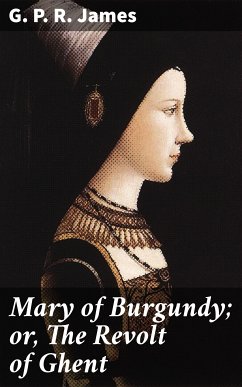In "Mary of Burgundy; or, The Revolt of Ghent," G. P. R. James intricately weaves a historical narrative set against the backdrop of the tumultuous 15th-century Low Countries. The novel combines vivid characterizations with a detailed exploration of the socio-political upheavals of the time, particularly the revolt of Ghent against the oppressive rule of Philip the Good. James employs a lyrical, yet accessible prose style, evoking the period's atmospheric tension while simultaneously engaging the reader's intellect. The work stands as a significant contribution to the genre of historical fiction, capturing the spirit of a pivotal moment in European history while reflecting the Romantic preoccupation with individual struggles against tyranny. James, a versatile novelist and historian, possessed a profound interest in the intricacies of European history, which deeply informed his writing. His background in both legal studies and authorship enabled him to infuse his narratives with authenticity and depth. These attributes, combined with his fascination for the transformative societal shifts of the era, culminated in "Mary of Burgundy," illuminating not only the historical figures but also the broader implications of their choices and conflicts. This compelling tale is recommended for readers who appreciate rich historical narratives grounded in authentic detail, along with those curious about the complexities of power, loyalty, and identity. James's work not only entertains but also provokes thought, encouraging meaningful reflection on the determination of individuals amidst the swirling tides of history.
Dieser Download kann aus rechtlichen Gründen nur mit Rechnungsadresse in A, B, BG, CY, CZ, D, DK, EW, E, FIN, F, GR, H, IRL, I, LT, L, LR, M, NL, PL, P, R, S, SLO, SK ausgeliefert werden.









